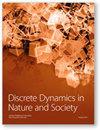外国援助的全球流动与受援国当地劳工机构的变化
IF 1.2
4区 数学
Q3 MATHEMATICS, INTERDISCIPLINARY APPLICATIONS
引用次数: 0
摘要
外国援助如何影响受援国的劳动体制?由于理论预测不明确和潜在的内生性问题,现有的经验证据并不丰富。本研究利用援助流量和制度功能的详细数据来缓解这种不确定性,并通过构建一个简明的理论框架来显示其独创性,在这个框架中,外国援助通过两种机制--经济增长目的和预期援助吸引力--促进受援国劳动制度的改善。研究结果表明,只有以促进当地经济增长为目的的援助才会激励国内劳动力市场发生变化。这种效应对最低工资、集体谈判权和工作时间等劳动制度的影响比那些与雇佣和解雇规定、解雇工人的法定成本和征兵相关的影响更为关键。为了与实际援助水平进行比较,我们构建了预测代用指标来捕捉援助的外生波动,从而确定国内劳动力市场也会通过一种新的机制发生变化,即受援国在预期获得未来援助的情况下自愿模仿资助国的劳动力政策,而具体数额则来自于双边受援国和援助国的非制度特征。因此,我们为援助方提供了如何确保持续和增加援助流量的政策启示,也为受援方提供了哪些方面的改革措施能最有效地加强劳动力市场监管的政策启示。本文章由计算机程序翻译,如有差异,请以英文原文为准。
Global Flow of Foreign Aid and Change in Recipients’ Local Labor Institutions
How does foreign aid affect recipient countries’ labor institutions? Extant empirical evidence is sparse due to ambiguous theoretical predictions and potential endogeneity issues. This study uses data detailing aid flow and institutional functions to mitigate such inconclusiveness and displays originality by constructing a concise theoretical framework in which foreign aid contributes to the improvement of the labor institutions in recipient countries through two mechanisms—economic growth purpose and expected aid attraction. The findings indicate that only aid to enhance local economic growth provides incentives to change domestic labor markets. Such effects have a more crucial influence on labor institutions of minimum wage, collective bargaining rights, and working hours than those related to hiring and firing regulations, mandated costs for worker dismissal, and conscription. For comparison with the actual aid level, we construct forecasted proxies to capture exogenous fluctuations in aid, determining that domestic labor markets can also change via a novel mechanism, as the recipient voluntarily mimics the funder’s labor policies in anticipation of receiving future aid, with exact amounts derived from the noninstitutional characteristics of pairs of bilateral recipient and giver economies. Therefore, we provide policy implications for the aid giver on how to secure a continued and increased aid flow and for the aid receivers on which aspects of reforming measures are most effective in enhancing the labor market regulations.
求助全文
通过发布文献求助,成功后即可免费获取论文全文。
去求助
来源期刊

Discrete Dynamics in Nature and Society
综合性期刊-数学跨学科应用
CiteScore
3.00
自引率
0.00%
发文量
598
审稿时长
3 months
期刊介绍:
The main objective of Discrete Dynamics in Nature and Society is to foster links between basic and applied research relating to discrete dynamics of complex systems encountered in the natural and social sciences. The journal intends to stimulate publications directed to the analyses of computer generated solutions and chaotic in particular, correctness of numerical procedures, chaos synchronization and control, discrete optimization methods among other related topics. The journal provides a channel of communication between scientists and practitioners working in the field of complex systems analysis and will stimulate the development and use of discrete dynamical approach.
 求助内容:
求助内容: 应助结果提醒方式:
应助结果提醒方式:


